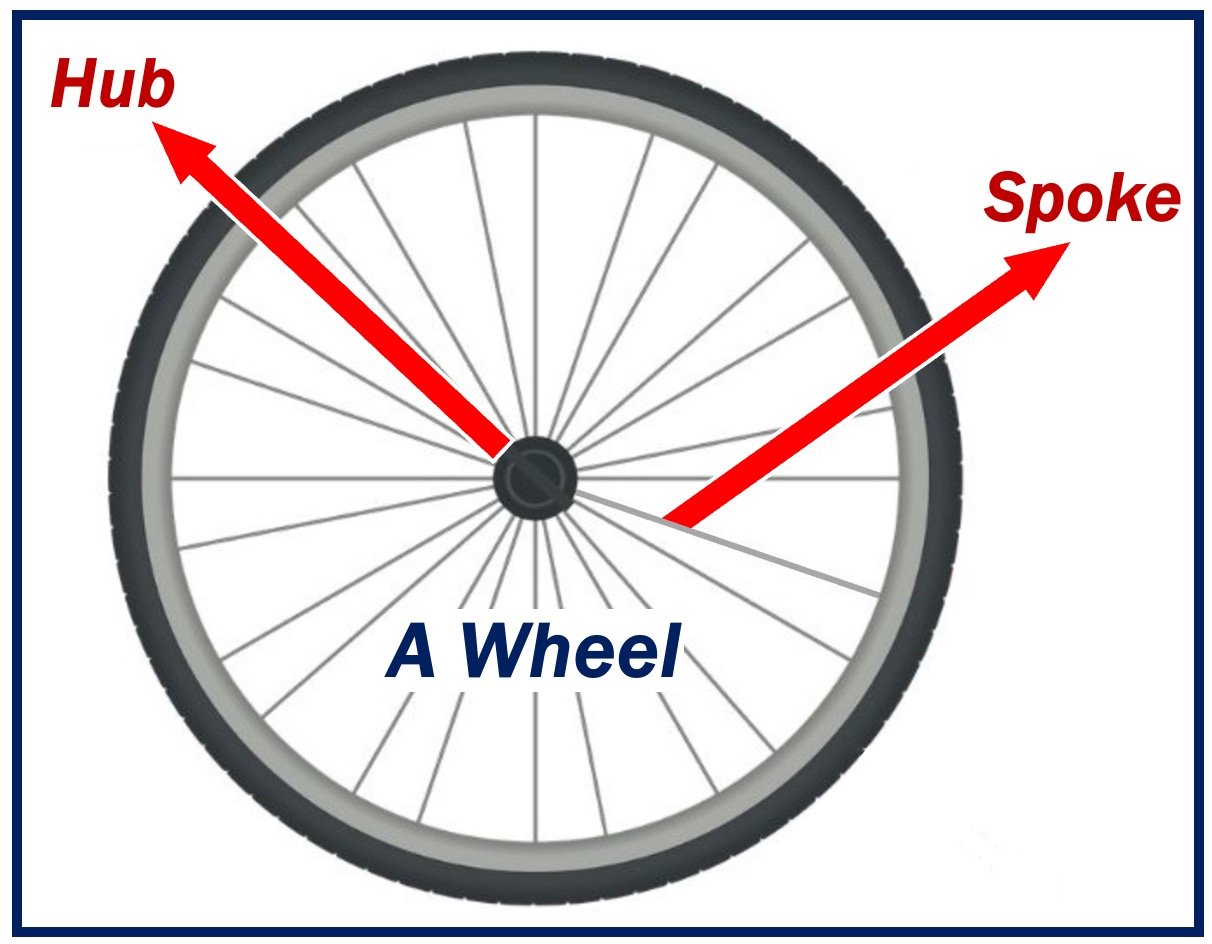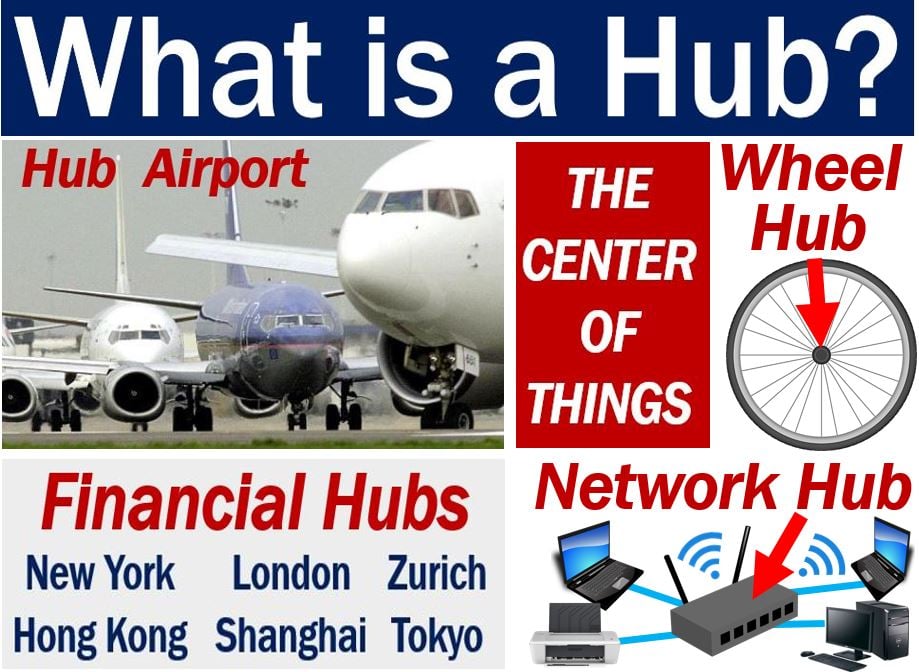Hub – definition and meaning
A Hub is a center of activity or the central part of a wheel. It is a central airport or another transport facility from which many different services operate. When the term relates to airlines and flights, we often refer to it as a ‘hub airport.’
-
Electronic device
It is also an electronic device that is the central connecting point for several computers. In other words, a device that connects other devices to a network.
-
Metalworking
In metalworking, the hub is a steel punch from which people make a medal or coin.
-
In a Wheel

A hub is also the central part of a wheel. The wheel’s spokes connect the hub to its outer edge.
This article focuses on the term’s meaning in the world of business and hi-tech devices.
According to the Oxford Living Dictionaries, a hub is:
“1. The central part of a wheel, rotating on or with the axle, and from which the spokes radiate. 2. The effective center of an activity, region, or network.”
“3. A central airport or other transport facility from which many services operate.”

Financial hub
A financial hub may be a region or a city. It is the focal point of a country’s or whole region’s financial services industry. We often refer to this type of place as a financial center.
They are home to major financial institutions, stock markets, and other financial companies and services.
These major financial centers typically emerge after the government passes supportive regulation. They may also develop as a result of externalities.
In this context, ‘externalities’ refers to the result of a high concentration of financial companies in a specific location. In other words, an area may become a financial hub because there were many financial services there initially. That concentration attracted more financial companies, and then more, i.e., the growth snowballed.
Financial hubs also play a critical role in fostering innovation and offering employment opportunities, which contribute to the overall economic growth of the region.
Moreover, the establishment of advanced technological infrastructure is often a cornerstone in the development of a financial hub, enabling rapid data processing and global connectivity.
Famous financial hubs, for example, are Wall Street in New York City, The City in London. Central in Hong Kong and Marunouchi in Tokyo are also major financial hubs.
Network hub
Network hubs are common connection points for devices that form part of a network. They typically connect segments of a LAN.
LAN stands for Local Area Network, i.e., a computer network that covers a relatively small area. Most LANs cover a building, a group of buildings, or just a single room.
The network hub has multiple ports. A port is an interface on an electronic device to which we can connect another device.
When a packet arrives at one port, it is subsequently copied to other ports. Consequently, all the LAN’s segments can see all packets. In this context, a packet is a piece of message that travels along a packet-switching network.
Webopedia says the following regarding the meaning of hub:
“Hubs and switches serve as a central connection for all of your network equipment and handles a data type known as frames. Frames carry your data.”
“When a frame is received, it is amplified and then transmitted on to the port of the destination PC.”
Other types of hubs
There are many compound words we can make with the term ‘hub.’ Let’s have a look at five common ones:
-
Innovation Hub
A center dedicated to research and development, fostering creative ideas and new technologies.
Example: “Silicon Valley is considered an ‘innovation hub’ due to its high concentration of tech startups and venture capital.”
-
Education Hub
A place known for its concentration of academic institutions and educational resources.
Example: “Boston is often described as an ‘education hub’ because of its many renowned universities and colleges.” (Harvard University, Massachusetts Institute of Technology (MIT), Boston University, Tufts University, Northeastern University.)
-
Transport Hub
A central location where different modes of transportation converge for the transfer of passengers and goods.
Example: “Grand Central Terminal is a major ‘transport hub’ in New York City, connecting trains, subways, and buses.”
-
Data Hub
A system or service where data is collected from different sources and made available for users or systems.
Example: “The company’s ‘data hub’ collects consumer insights from various touchpoints to help created marketing strategies.”
-
Health Hub
A center that provides a range of health services, often including education, prevention, and treatment.
Example: “The new facility aims to be a ‘health hub,’ offering community wellness programs alongside medical care.”
Video – What is a Hub?
This video presentation, from our YouTube partner channel – Marketing Business Network, explains what ‘Hub’ means using simple and easy-to-understand language and examples.

